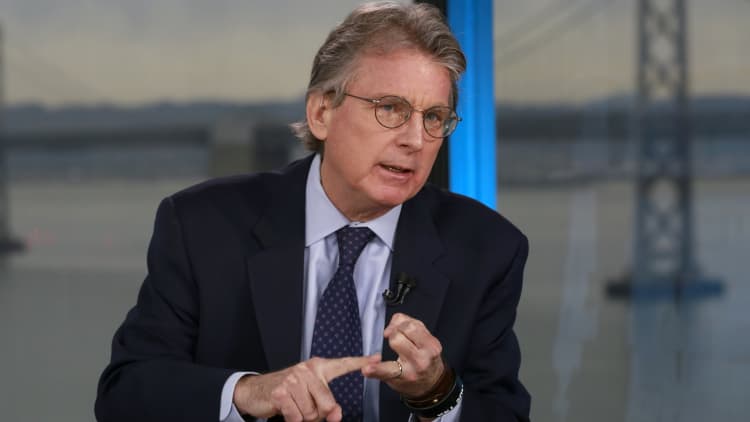There's a case study that business schools use as an example of how companies can manage a crisis of public trust. It involves Johnson & Johnson, the pharmaceutical giant, and how the company reacted after seven people died from ingesting cyanide-laced Tylenol in 1982.
Facebook COO Sheryl Sandberg probably heard it while she was a student at Harvard back in the 1990s, when it was more fresh on people's minds. Johnson & Johnson, the top maker of Tylenol, had a very tough job in explaining how a mystery killer was able to inject poison into bottles of Tylenol before it ended up on pharmacy shelves.
So how did the company manage the situation?
It started by recalling all of its products, costing it millions, which showed that public safety came first. Its executives apologized profusely, and showed a lot of raw emotion in responding to the fatalities. And it worked with federal regulators to introduce tamper-proof packaging to assuage people's fears. Within a year, its sales had rebounded to where they were, and critics were praising the company for how they responded to the crisis.
Early Facebook investor Roger McNamee is well aware of the case. On a new podcast interview with the author and philosopher Sam Harris, McNamee opened up about how he tried to steer Facebook's executives down a path of taking more responsibility for abuse on its platform. And he brought up this J&J case as an example of how to manage a crisis effectively.
McNamee claimed on the podcast to have predicted early on that the Facebook platform could be used for ill, including in misinformation campaigns. In the run-up to the 2016 presidential election, he had noticed memes that were denigrating presidential hopeful Hillary Clinton, which disturbed. McNamee said he tried to warn Facebook, but he wasn't effective in getting the message across.
"You (Facebook) gotta do what Johnson and Johnson did," McNamee said he told executives at the company. "They defended their customers even though they didn't put the poison in."
McNamee saw clear parallels to Facebook, which also didn't view itself as "technically responsible" for the ways that third parties abused its platform, including the Russians.
"I thought Facebook could convert a potential disaster into a winning situation by opening up to the investigators and working with the people who used the product to understand what had happened," he noted in the podcast interview. "For three months, I begged them to do this and I realized they were never going to take it seriously."
This isn't the first time that McNamee has hailed J&J as an example of how to manage obstacles in a business that is built on trust.
He also referenced it in his 2018 op-ed in the Washington Post, where he provided a roadmap for fixing Facebook that he hoped would be a call to action for the company.
And he's not alone. Others in Silicon Valley have raised the J&J case to the attention of Facebook executives.
Michael Dearing, a longtime investor and former eBay executive, noted on Twitter that Sheryl Sandberg, Facebook's COO, probably "aced" her business history class at Harvard, where she would have learned about the Tylenol scandal. Dearing noted that J&J's then CEO James Burke "choked up" more than once about the fatalities, which showed that he cared. Meanwhile, Facebook's executives have been criticized for their robotic delivery, and in deflecting criticism and denying responsibility.
"Be like (James) Burke," advised Dearing in a tweet. "Be human, say the truth no matter how it makes you look."
While the cases are different in many respects, both in the sector and the time period, three public relations experts told CNBC that they agree with Dearing and McNamee.
J&J struck the "right emotional chord," said Bob Pickard, a seasoned communications executive.
"Facebook's strategy of denial and evading responsibility followed by reluctantly engaging in corrective action...doesn't match the reality of what's needed."



